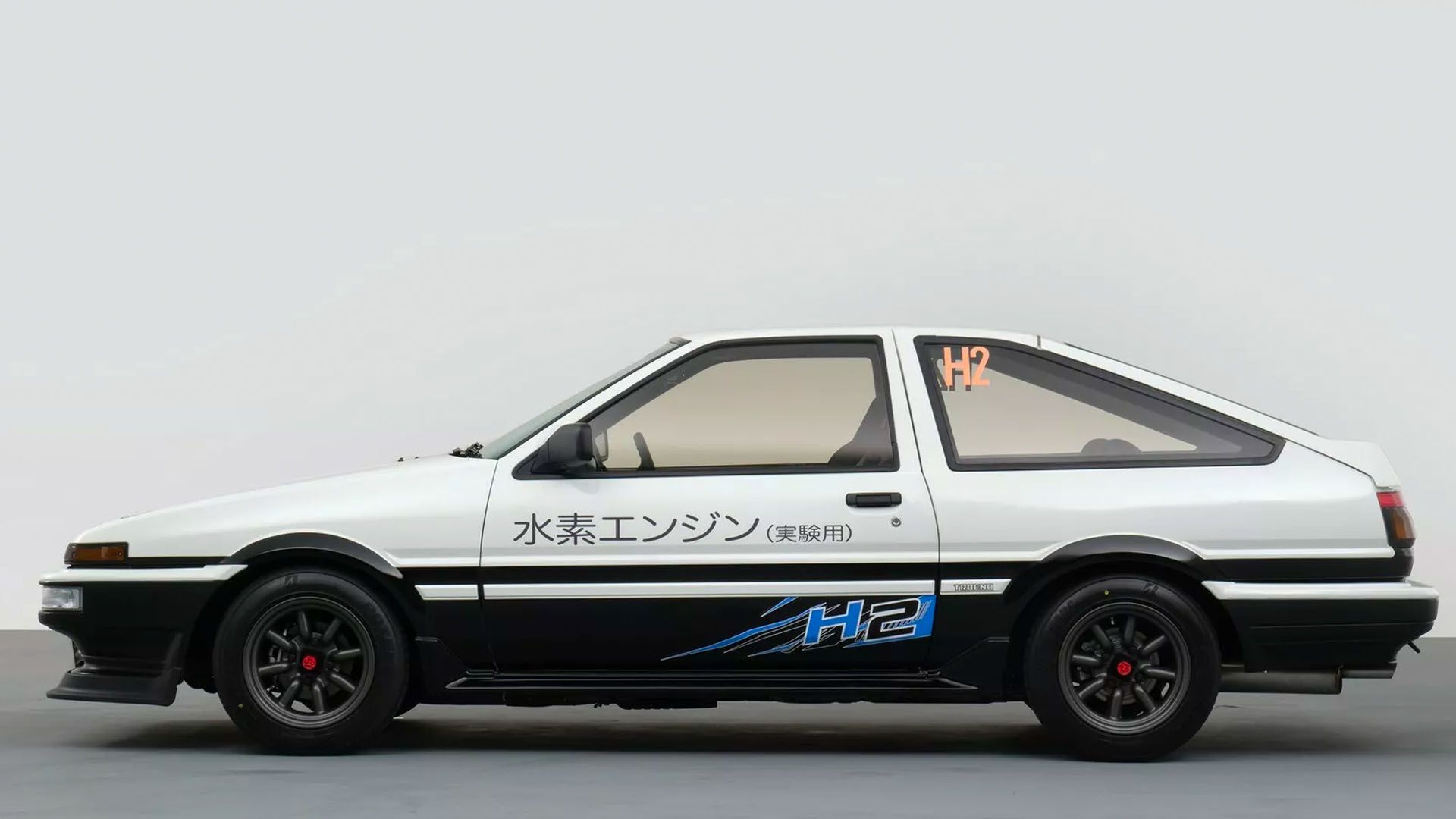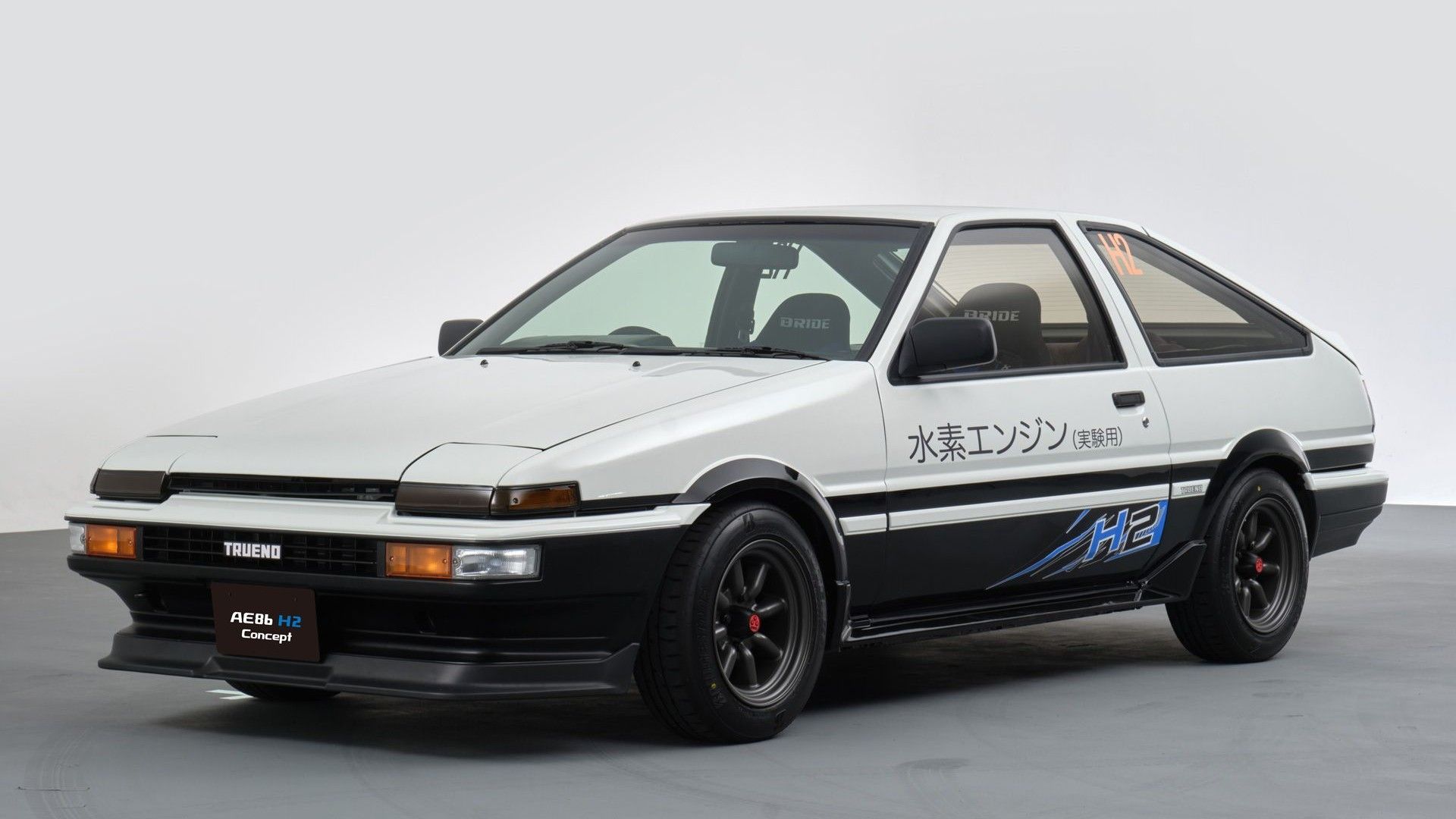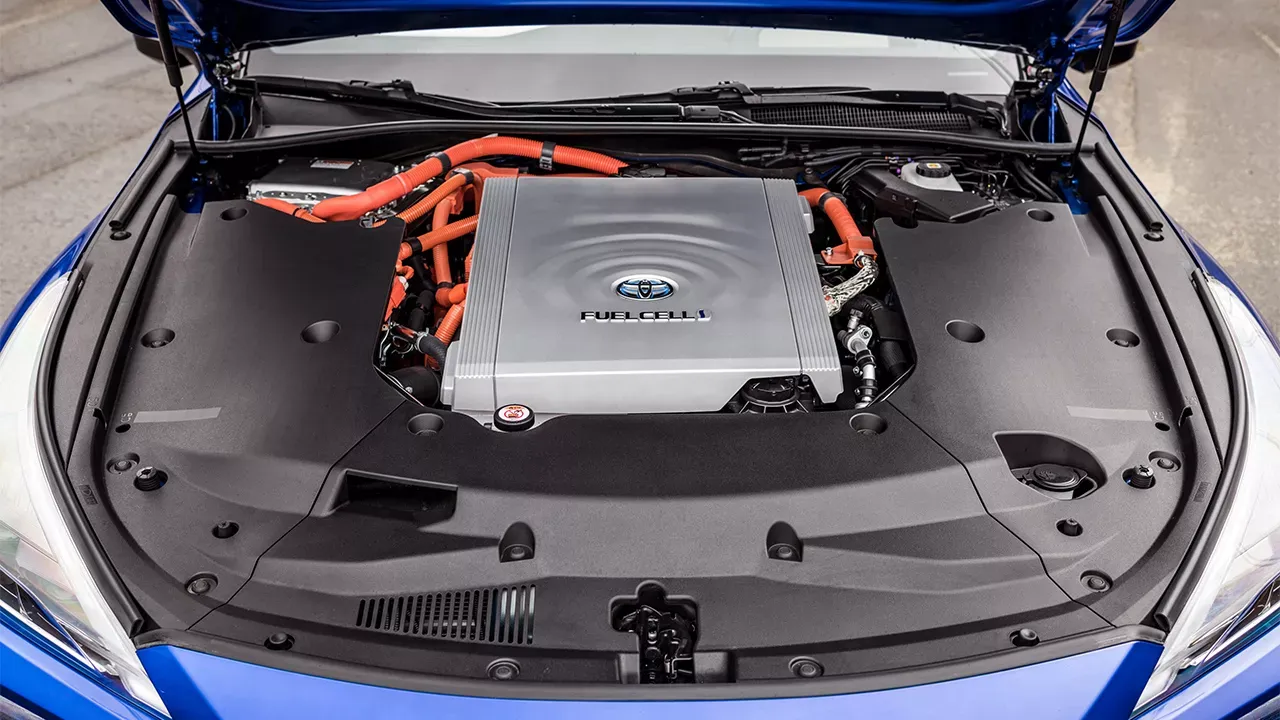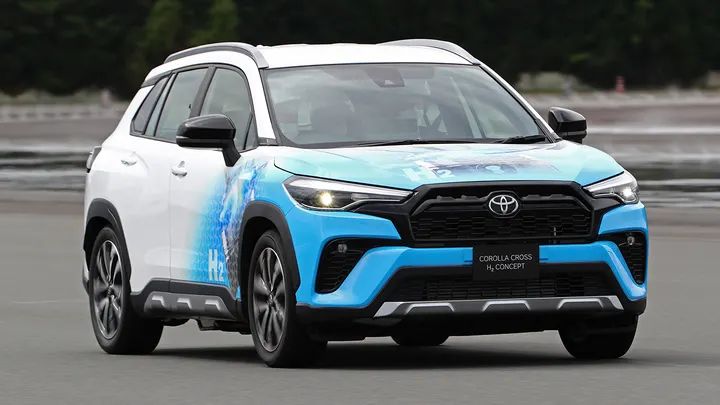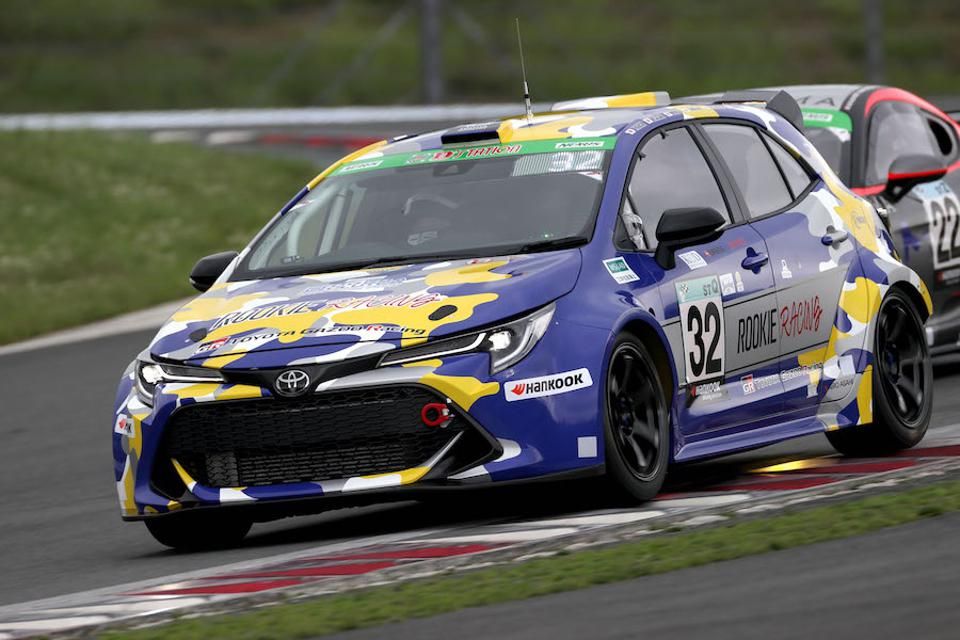With an already dominant push for electric vehicles in today's market, there's another option hiding in the shadows, just waiting to make its move — Hydrogen. At the Tokyo Auto Salon, Toyota displayed what could only be described as a nostalgic breakthrough in automotive engineering; a hydrogen-powered AE86. Nicknamed the 'H2' (for obvious reasons), this concept car is intriguing, whimsically inventive, and overcoming every obstacle on the path to green energy and zero emissions. It surely begs the question: "Just what has Toyota been up to?"
The Hydrogen Toyota AE86 Is A Blast From The Past
The 'Toyota: Leaving No Car Lovers Behind' exhibit focused on outdoor lifestyle and displayed the idea of "Being kind to and enjoying nature - our new and prosperous lifestyles." Brought to the table in this new push for carbon neutrality, Toyota displayed a pair of long-loved AE86s — one electric, and one hydrogen. The latter was dubbed the H2 Concept hydrogen-engine vehicle, and utilizes two fuel cell hydrogen storage tanks from the new Mirai. TGR (Toyota GAZOO Racing) brought back the classic 86 as an enjoyable, drivable vehicle that still has the appeal, sounds, and vibration similar to the internal combustion engine we know all too well. Given the minimum number of modifications made to other parts like the fuel injectors, pipes, and spark plugs, you almost can't even tell if the car runs on anything other than gasoline. And this is only the beginning of what is likely to become a mainstream trend for Toyota and its ability to use the most common element in existence to power vehicles.
Green Thumb For The Toyota AE86 H2
Late last year, word got out that Toyota was working with BMW and Thatcham Research to develop and implement alternatives for automotive fuel sources. In addition, it was revealed that the Japanese car maker had teamed up with Yamaha on a hydrogen 5.0-liter V8 engine in an attempt to keep up with the United Nations 'Net Zero' goals. Aside from the geopolitical standpoint, the research and development of hydrogen-based fuel is quite promising. Not only is hydrogen a more efficient fuel source than gasoline, but it also produces no tailpipe emissions (just water vapor and warm air).
While Toyota began developing hydrogen fuel cell technology in the early '90s, its hydrogen-powered flagship Mirai wouldn't come to be released until 2016 due to a lack of public fueling options and low demand. Little did they know, this dimly lit beacon would steadily come to be embraced by the world less than a decade later. Although tight-lipped about specifics related to the research, we do know of prototypes already in the works for a Toyota pickup and SUV.
The Next Generation
The future is here and (to some) is looking stranger than fiction. Vehicles operating on hydrogen? Who would've known? Evidently, Toyota has known for a while. For over three decades now, Toyota has been working on using hydrogen as fuel. Having to overcome hurdles in technology, as well as the wildly imaginative thought of automobiles being propelled by anything other than gasoline, advances have made it not only possible but very real indeed.
In 2016 the first Mirai was released and has enjoyed production numbers every year since, but with California being the only state having a network of retail hydrogen fueling stations to date, it is unlikely that we will see any mass production of these vehicles in the U.S. anytime soon, yet it's only a matter of time. Elsewhere in the world, though, Toyota and hydrogen are a team on the move. In the UK, Toyota has already received £5.7 million (about $7 million) of industry funding and another £5.6 million from the government there to begin development of the Hilux pickup truck with a hydrogen-powered engine.
Another very hopeful example of Toyota's exploration into Hydrogen FCEVs (Fuel Cell Electric Vehicles) is the Corolla Cross H2 Concept subcompact SUV. By converting the 268 hp 1.6-liter three-cylinder turbocharged engine out of the GR Corolla and adding high-pressure hydrogen injectors, they have built a vehicle that puts out roughly the same power as the one fueled by gasoline. And to top off an already eventful past couple of years, a recently completed pilot project at the Port of Los Angeles has scored a huge endorsement for Toyota from the trucking industry. 10 fuel cell T680 trucks co-designed by Toyota and Kenworth became a very integral part of the Zero And Near Zero Emissions Freight Facility (ZANZEFF) Shore to Store (S2S) project.
Racing With Water
Hydrogen technology is already being used in motorsports. In 2021, a hydrogen-powered Corolla Sport debuted in the Fuji 24 Hours, Japan's only full-day race. And again in 2022, Toyota's President Akio Toyoda partnered with Rookie Racing, taking to the wheel of a hydrogen combustion GR Corolla H2. Participating in all Super Taikyu endurance races in Japan, efforts were made to help contribute to evaluation and development. Meanwhile, in Belgium, a GR Yaris H2 gave a demonstration at the WRC in Ypres, further demonstrating the ultimate power of Toyota's hydrogen-fueled machines.
In a strong showing of reliability and fortitude, the auto-making giant is surpassing the competition (quite literally) in every aspect of hydrogen power being road-worthy. And you've got to give it to them because testing the water never looked so good.

